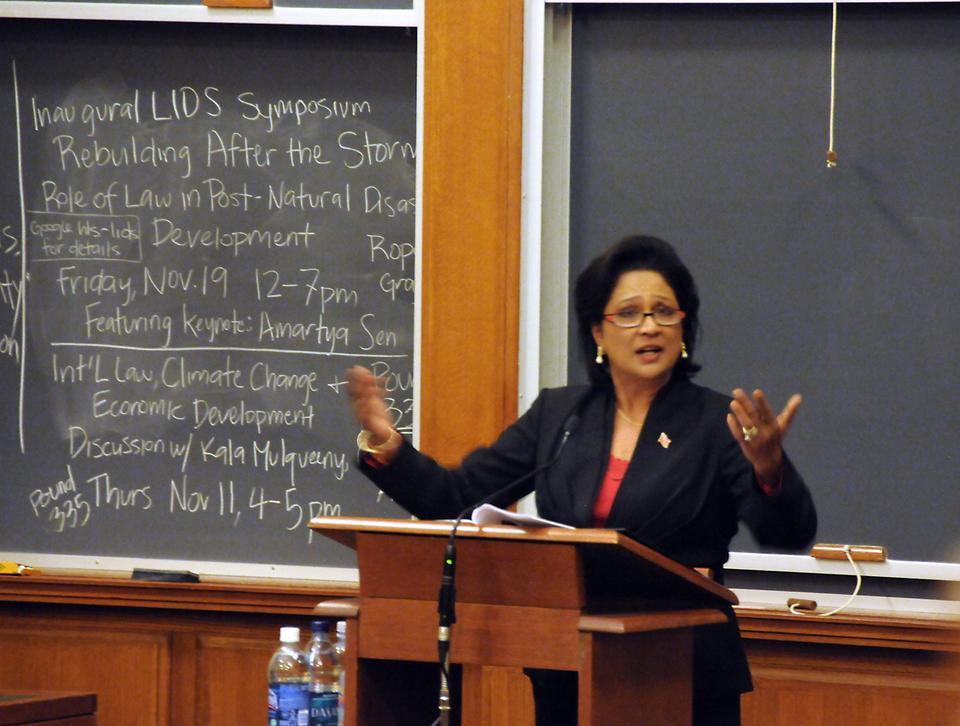
News
Summers Will Not Finish Semester of Teaching as Harvard Investigates Epstein Ties

News
Harvard College Students Report Favoring Divestment from Israel in HUA Survey

News
‘He Should Resign’: Harvard Undergrads Take Hard Line Against Summers Over Epstein Scandal

News
Harvard To Launch New Investigation Into Epstein’s Ties to Summers, Other University Affiliates

News
Harvard Students To Vote on Divestment From Israel in Inaugural HUA Election Survey
Trinidad and Tobago Prime Minister Discusses Negotiations

Kamla Persad-Bissessar, the first-ever female Prime Minister of Trinidad and Tobago, spoke last night at Harvard Law School on the importance of negotiation and cooperation in a country with five political parties and an ethnically, religiously, and socioeconomically diverse population.
Persad-Bissessar, who was elected in May by a wide margin over the incumbent leader, spoke extensively about the value of inclusiveness, honesty, and transparency in running a government.
“We are a small country, and we cannot afford to exclude talent simply because of ethnicity or simply because of political affiliation or simply because of religion,” she said.
Persad-Bissessar became the Minister of Education in December 2000, and this January, she was elected as the head of United National Congress—the center-left political party in Trinidad and Tobago—over the founder of the party.
After long introductions that highlighted her accomplishments and the difficulties of her rise to power, Persad-Bissessar lightened the tone by beginning her speech with a joke.
Stressing the theme of cooperation and negoation, Persad-Bissessar said that she was not, and could not have been, elected only by one group of people.
“Each person should be respected. My success is dependent on convincing the population on something that transcends race, religion, and culture. I could not win the election with only the support of the affluent population,” she said.
She concluded by encouraging Harvard students to visit Trinidad and Tobago to experience its rich culture.
The speech was sponsored by the Program on Negotiation at Harvard Law School, the Institute of Politics at Harvard Kennedy School, and the Harvard International Negotiation Program.
Persad-Bissessar was invited to Harvard’s campus when Daniel Shapiro, associate director of the Harvard Negotiation Project and a Law School faculty member, visited Trinidad and Tobago to give a workshop to her and her advisers on how to negotiate, according to Eric M. Hendey ’14—who is a student in Shapiro’s freshman seminar called “Negotiation and Conflict Management: Dealing with Emotions and Identity.”
“A lot of the times the government in the United States, there is a preoccupation about the government being removed from the people, which is very different from how she views a government should operate,” Hendey said.
Want to keep up with breaking news? Subscribe to our email newsletter.
